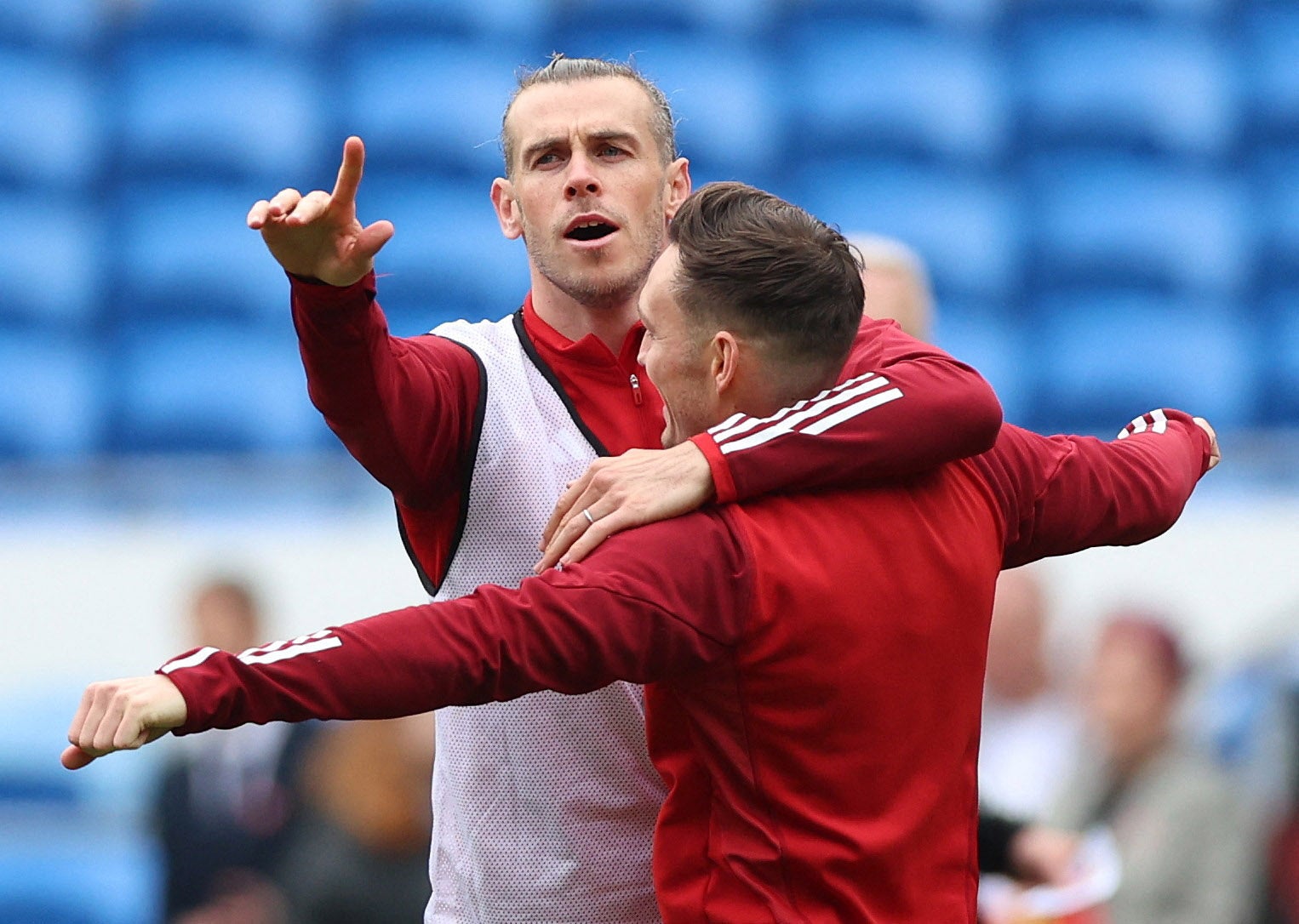Wales ready to prove again that sidekicks can star in their own right
Wales are out to echo recent tournament successes at a first World Cup for 64 years

The shirt Pele wore in Wales’ last match in a World Cup ended up being used by a Sunday league pub team in Swansea. It may have cost Mel Charles, the defender who swapped shirts with the 17-year-old in Gothenburg, a small fortune in latter years when such memorabilia would have been valuable; as it was, Charles, who played in era when the maximum wage was £20 a week, could not afford a new kit for the amateur side he managed and so reached into his stash of former international shirts.
Should, say, Joe Rodon or Chris Mepham end up with Lionel Messi’s top in a potential quarter-final in December, it is unlikely to meet with a similar fate. But it is one illustration of how times have changed since Wales last graced the global stage. In 1958, 25 percent of the teams were the Home Nations; there was a British pot in the draw. And if that ensured they could not face each other in the group stage then, now, as in Euro 2016, Wales are pooled with England. They topped that pool on their way to the semi-finals and a small country have shown they can go a long way: Wales have escaped the group stage in 1958, 2016 and Euro 2020.
Their problems have tended to come instead in qualifying. While Qatar are playing in their first World Cup, none of the other nations in the 2022 tournament have been absent for as long as Wales. Cliff Jones and Terry Medwin, the two Welsh survivors of the 1958 quarter-final where Pele scored his first World Cup goal, are 87 and 90 respectively. They may have thought they would never see Wales play in another World Cup. Indeed, it could be Wales’ last, but for different reasons, with plans to rename the national team Cymru.
There has been a nationalist flavour to the soundtrack. Dafydd Iwan’s anthem Yma O Hyd has been adopted as Wales’ World Cup song, sung by English-speaking and, in some cases, English-born players. The video features decades of disappointment, such as the crushing blow of Paul Bodin’s penalty miss against Romania in 1993, but is unashamedly political, featuring the miners’ strike and Iwan’s release from prison after campaigning for the use of the Welsh language. At 79, he has never been more popular.
Iwan is not the only ageing icon with symbolic importance for Wales. They owe their presence at the World Cup to Gareth Bale, to his deflected free kick in the play-off final against Ukraine, to his brilliant brace in the semi-final against Austria, to the wider impact of his love of lining up for, and even linking up with, Wales. Bale has embraced his country’s cause. He seems a part-time player at club level, yet a totemic, talismanic figure when international fixtures come along. He has only played 28 minutes of football since September but has pronounced himself willing to complete the full 90 in all three group games in Qatar.
As his 128th-minute equaliser for Los Angeles Galaxy in the MLS Cup final showed, Bale remains a great-moments player, capable of deciding games through a blend of force of personality, muscle memory of his peak and ball-striking – and ball-heading – ability. Bale’s five Champions Leagues, and his pivotal role in the first four, gave him a strong case to be the greatest ever Welsh player, but propelling his country to Qatar probably sealed that status.
For decades, the title arguably rested with John Charles. Wales have had a lifetime to wonder if Charles’s absence against Brazil in 1958 cost them a semi-final berth; perhaps even the World Cup. If, once again, they feel over-reliant on the fitness of an inspirational figure, perhaps that is the lot of the countries with lesser populations. And yet Wales have demonstrated they can produce extreme talents who can exert a crucial influence. Aaron Ramsey was still better than Bale in Euro 2016; in the Euro 2020 win over Turkey, too.
Wales have surrounded their creaking bodies with fresh legs. In Dan James and Brennan Johnson in attack, in Neco Williams and Connor Roberts at wing-back, there is plenty of pace, in Kieffer Moore, the giant target man who can be wheeled out. They will have less possession than many sides but can bank on the kind of defiance in defence that Wayne Hennessey and Ben Davies produced against Austria.
Part of Wales’ success has been to forge the kind of spirit more associated with club sides, but boosted by the combination of patriotism and longevity. Bale debuted before the 2006 World Cup. The three centurions – Bale, Hennessey and Chris Gunter – have all been playing international football for at least 15 years. Even as Gunter has descended the divisions to League Two, he remains a staple of the squad. Wales have turned the reality they have a smaller number of players into a strength.
An unsung hero may be an unglamorous one. Robert Page was a journeyman centre-back, a former Port Vale and Northampton manager catapulted into the role of caretaker manager for his country when Ryan Giggs was suspended. Page’s decency and normality scarcely give him the air of a managerial genius, but he has proved a quietly excellent deputy, and then replacement. In his unheralded way, he has emerged as a figure of some stature. This will be Wales’ fourth major tournament and Page will have taken charge of half of them.
Wales are proof sidekicks can star in their own right. Their World Cup squad was announced in Tylorstown, the Rhondda Valley birthplace of both Page and Jimmy Murphy, their manager in 1958 but, to those outside Wales, perhaps better known as Sir Matt Busby’s assistant at Manchester United. Meanwhile, the United States revealed their squad by lighting up the Empire State Building in red, white and blue. It is the United States first for Wales, followed by Iran and England. They may not face a player of Pele’s calibre but scouting was more rudimentary in 1958 and Jones admitted recently that they had never heard of the young Brazilian then. Even if Mel Charles had by the time he was loaning perhaps the greatest ever footballer’s shirt to pub-team players.
Join our commenting forum
Join thought-provoking conversations, follow other Independent readers and see their replies
Comments



Bookmark popover
Removed from bookmarks